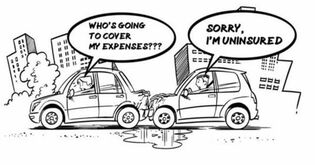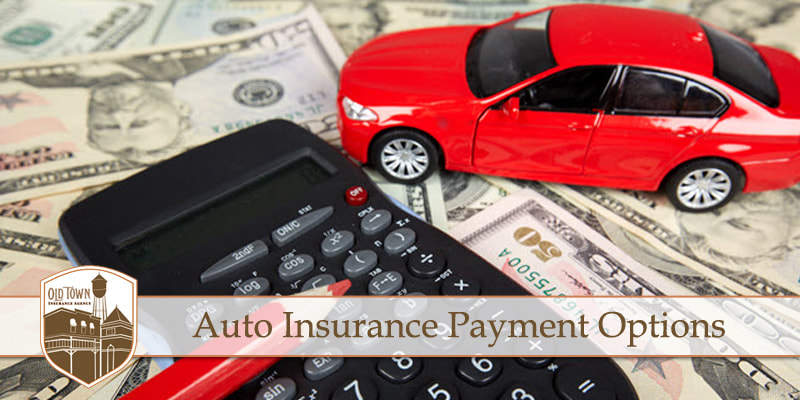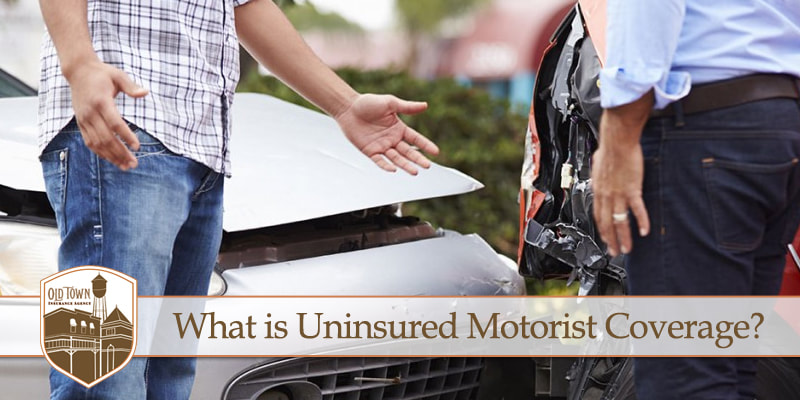 Start your engines! Well, not quite yet. There are a few things you should do first. Here are some helpful tips for getting your boat and other personal watercraft ready for Boating Season! This article covers some seasonal, to-do list basics. Depending on the climate where you live, how often you use your watercraft, how it's stored, if it has been winterized and how often you maintain it, you may want to take your boats or other watercraft into a professional boat or marine service center or licensed mechanic.
We have access to some of the best boat insurance programs available! For more information, call us today at (559) 322-2525 or Click Here for a boat insurance quote. This is just a general list of tips and precautions. Some vehicles may require other servicing before being started or taken out on the water. When unsure, consult with your boat dealer or mechanic, as well as reading your owner's manual, before you take out your watercraft. Below is a quick video on getting your boat ready for summer.
0 Comments
What is the best way to buy an Insurance Policy? Annually, semi-annually, quarterly, month-to-month? What's cheaper in the long run, monthly payments, semi-annual paying your policy in full?
In this article, we will point out some of the benefits and drawbacks to each payment plan, explore the difference between paying monthly vs annually or semi-annually (6 month), direct bill vs auto-pay, and what works out better in terms of savings and total cost. Picking a Term Most auto policies are purchased as a 6-month or 12-month agreement. There are also options with some companies to purchase the policy quarterly or even month-to-month. There can be advantages, and sometimes disadvantages, to each depending on the situation. The advantage of purchasing an annual (or semi-annual) policy is that it will lock in the rate for the whole term. Rates can increase across the board from month to month and as such it would seem that buying a policy with the longest term possible may be the best way to go. Though, some people prefer a shorter term as to keep their options open. One example may be that someone has a ticket on their record that is getting ready to drop off in a couple months. If they purchase a 6 month policy vs a 12 month they may qualify for a better rate sooner. Quarterly policies are rare and usually for a specific personal budgeting purpose or short-term need. Month-to-month policies are policies that renew every month. The advantage? In many cases, the down payment is cheaper due to the fact that the up-front cost is not based on a percentage of an annual term to calculate monthly payments, it is specifically covering a one month premium. Another advantage is that the policy can be let go easier and without cancellation fees. If the consumer no longer needs their policy, they can just non-renew on any given month. The disadvantages of this type of policy are that the rate can fluctuate or go up potentially every time it renews and, if the payment is late, there is no grace period. If the payment is not made by the due date, the policy would have to be re-written or possibly re-instated with a lapse. That's why we always suggest to our clients that we set them up on auto-pay, but we will look further into that further down the page. Paid-in-full vs monthly installments A standard payment option most insurers offer is to pay for your car insurance in one single upfront payment. By paying your yearly (or semi-annual) premium all in one go, you won’t have to worry about costs again until it comes to the end of the policy, as this bill is taken care of. Obviously paying for a full year’s premium upfront is not feasible for most of us, so most people find monthly installments more attractive. Paying monthly will allow you to spread the cost of your insurance over the year (or 6 months), making it a more manageable bill. Most insurers provide this payment plan. Sound good? Well, though this makes it more convenient, there is always a price for convenience. The trade-off is usually monthly billing fees. Most insurance carriers will charge between $1 - $12 per month. To Auto-Pay or not to Auto-Pay? That is the question. The terms EFT, ACH, and Auto-Pay bring up different feelings for different people. Some may like the convenience of EFT while others like to maintain complete control. I agree with both camps. I like complete control and don't care for my account information being "on-file" with a company. Ironically, these days our information is "on-file" with companies like Netflix, eBay, Paypal, Venmo, Spotify, Amazon, etc. However, I have come to realize some things take priority. I want to make sure I do not end up with a cancelled policy. By having it on auto-pay, its paid on-time like clockwork. Also, there is usually a significant savings! I like paying $1/mo for my billing fee vs $11! Though, its not the same with every company, usually there is some monetary incentive to being on auto-pay. Our job is to find the best policy, coverage, term and payment plan for each of our clients based on their specific needs. Please feel free to call us for any questions you may have or to obtain a free quote. What is an SR-22? An SR-22 is a certificate of financial responsibility developed by the insurance industry and each state’s Department of Motor Vehicles (DMV). This form tells the DMVs that an individual has automobile insurance.
An SR-22 form is used when someone must prove they have insurance in order to obtain, keep or reinstate their license, usually for one of these reasons:
How do I file? Some insurance companies file these forms automatically for their customers, but not all. Fewer companies will offer insurance. Ask your agent to file the SR-22 or call the customer service number at your insurance company. They will take care of it for you. Is there a cost to filing an SR-22? The SR-22 certificate is filed directly with the state by your insurance company. Infinity charges a fee to file this form. -The fees differ by state, but usually cost around $25. However, the infraction that caused you to apply for an SR-22 is what could make your premium rise considerably. This doesn’t mean that you can’t shop around, but expect to see a significant increase in your auto insurance. How long does the SR-22 remain in force? If your insurance policy remains in effect, not canceled for non-payment or any other reason, the SR-22 filing remains in force until it is no longer required by the DMV. The insurance company is required to tell the state if the insurance policy is cancelled. Failure to maintain the SR-22 filing may result in the loss of your license. What if you’re moving to a different state? If you filed for an SR-22 in one state and moved to a different state, you still need to meet the requirements of the SR-22 where the offense took place. Look for an auto insurance company that operates nationwide, so you don’t run into issues when you move elsewhere. There are some states that don’t use an SR-22 certificate. These states are: Delaware, Kentucky, Minnesota, New Mexico, New York, North Carolina, Oklahoma and Pennsylvania. These states have their own requirements and forms that you’ll need to fill out to be compliant with each state’s laws. What’s the difference between an SR-22 and the FR-44? An FR-44 is a document of financial responsibility required in Florida and Virginia to prove that you carry auto insurance, after you’ve been charged with a DUI or another major offense (such as driving with a suspended license). The main difference with an FR-44 is that you’re required to have coverage that is significantly higher than the state’s minimum for the next three years. At Old Town Insurance Agency, we have affordable SR-22 options to help get you back on the road. Call us today at (559) 322-2525 or click here for a free SR-22 quote.  What is Uninsured/Underinsured Motorist coverage? The short answer...it will cover you, under the liability portion of an auto policy, in case you are hit by a driver with either no insurance or not enough to cover your damages. If a driver or owner of a vehicle does not have insurance and is legally liable for an accident, you can use Uninsured Motorist (UM) coverage for injuries, including death, that you, your resident relatives, and occupants of your insured vehicle sustain, up to the limits you select. Certain exclusions may apply. Refer to your policy. If a driver or owner of a vehicle is legally liable for an accident but does not have enough insurance, you can use Underinsured Motorist (UIM) coverage for injuries, including death, that you, your resident relatives, and occupants of your insured vehicle sustain, up to the limits you select. Certain exclusions may apply. Refer to your policy. If driver or owner of a vehicle is legally liable for an accident but does not have insurance or does not have enough insurance, you can use Uninsured/Underinsured Motorist Property Damage Coverage (UMPD) to cover damage to your insured vehicle, up to the limits you select. In some states, UMPD is available as an alternative to Collision coverage. Certain exclusions may apply. Refer to your policy. So what's the bottom line? Though it is not currently a requirement in California, most Insurance Agents and Brokers highly recommend this coverage. It is usually not much more money to include it on your policy, $5-$10 additional per month on average, but the piece of mind and potential benefit in the case of an accident are worth it. For more information on Auto Insurance coverage, call or email us today!  Welcome to our new insurance agency blog! This is our very first post. We're not quite sure what we're going to write about here, but the plan is to create helpful content for customers and prospective clients about information that is relevant to you. We hope you'll come to view this as a top resource for keeping your family and your finances safe. Here are a few of the topics we may be writing about:
Stay Tuned! |
Contact Us(559) 322-2525 Archives
April 2020
Categories |
Navigation |
Connect With UsShare This Page |
Contact UsOld Town Insurance Agency
CA License # 6001012 325 Clovis Ave Ste 114 Clovis, CA 93612 (559) 322-2525 Click Here to Email Us |
Location |
Website by InsuranceSplash





 RSS Feed
RSS Feed